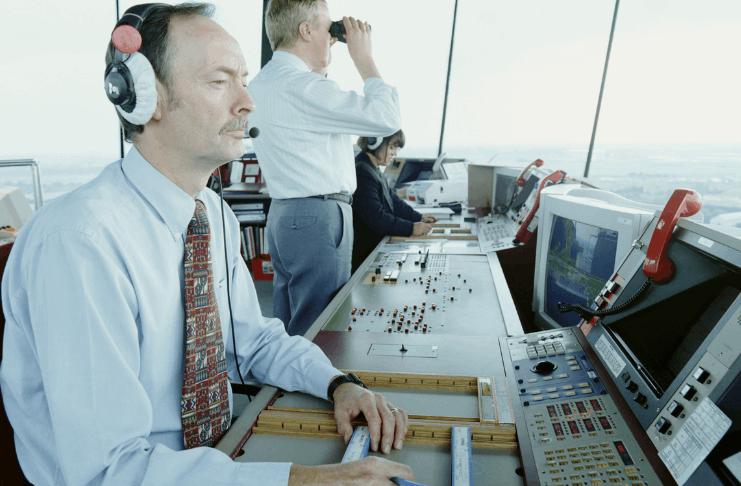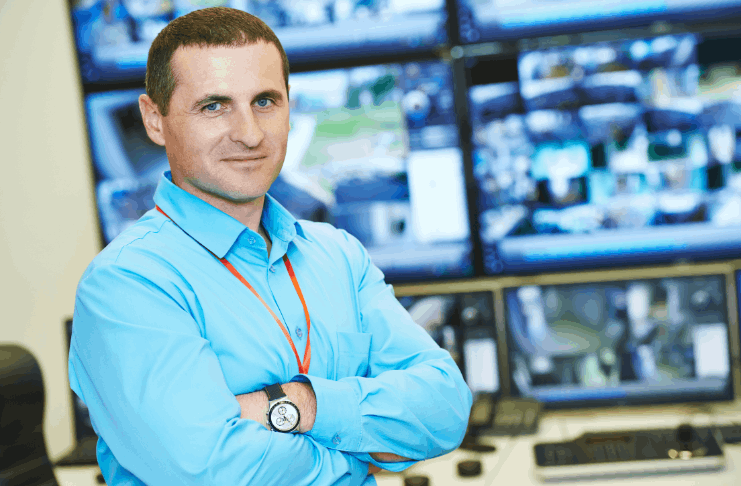Are you curious about the jobs that AI will soon take over? In this article, we’ll explore what jobs will be replaced by AI and discuss the top positions at risk of being automated.
Get ready for a shock because there’s one job in particular that you would never expect to be replaced by technology. But trust me, and you won’t want to miss the number one job on our list – it’s truly shocking!
Jobs on the Chopping Block: The Impact of AI on the Future of Work
Artificial Intelligence, or AI, is the simulation of human intelligence in machines programmed to think and learn like humans. As AI technology advances, it’s becoming more and more apparent that specific jobs will be replaced by it.
The convenience and efficiency AI offers make it a viable option for many industries. But there’s one job in particular that may come as a surprise. If you’re curious about what AI will replace jobs, how it relates to replacing careers, and how it will change the future of work, be sure to read on and discover which career is at risk of being taken over by AI. Trust me, you won’t want to miss it!
What is AI(Artificial Intelligence)?
Artificial Intelligence, or AI, is the simulation of human intelligence in machines. This can include learning, decision-making, problem-solving, and pattern recognition. AI technology can range from simple programs that perform basic tasks to more advanced systems that mimic human thought and behavior.
Several types of AI exist, including rule-based approaches, decision trees, and neural networks. With the advancements in technology, AI has the potential to automate many jobs and change the way we live and work. It’s a rapidly growing field with a lot of potential and worth keeping an eye on.
Will Robots Take Over Our Jobs?
The question of whether robots will take our jobs is a complex one. As technology advances, it is becoming more and more possible for machines to automate specific tasks that humans previously did.
For example, automation in the manufacturing and transportation industries has been replacing human jobs for a long time. Similarly, with the advancements in AI and machine learning, specific jobs are at risk of being automated.
According to the World Intelligence Congress, by 2024, AI, virtual personal assistants, and chatbots are expected to automate nearly 69% of a manager’s workload.
However, it’s important to note that automation can create new job opportunities and increase productivity and efficiency in many sectors. It’s a double-edged sword, and it’s hard to predict the exact outcome, but it’s worth considering the potential impact on the workforce as we move forward.
What Jobs Will Be Replaced by AI in the Future?
So you want to know which jobs are most at risk of being taken over by AI? Get ready to have your mind blown because we’re about to reveal the top position AI is expected to replace. But that’s not all, and we’ll also be diving into a few other jobs that AI technology will likely automate in the future.
So, if you’re curious about how AI will change the job market and want to know which jobs you should start thinking about retraining for, keep reading!
Customer Service Executives
One of the jobs expected to be heavily impacted by AI is customer service. With the advancements in AI technology, it’s becoming more and more possible for machines to handle customer inquiries and complaints and provide support.
AI-powered chatbots can handle customer service, communicate with customers in natural language, provide quick and accurate responses, and even upsell products. Additionally, they can work 24/7 with minimal downtime and no need for breaks, increasing productivity and efficiency.
These factors make it an excellent option for companies looking to improve their customer service operations, which is why it’s becoming one of the most popular fields for AI-based automation.
Bookkeeping and Data Entry
Bookkeeping and data entry are highly repetitive and predictable tasks, making them prime candidates for automation by AI. With the use of machine learning algorithms and other AI technologies, it’s becoming possible for machines to handle these tasks with high accuracy and efficiency.
For example, an AI-powered system can quickly and accurately process large amounts of financial data, making it an ideal replacement for bookkeepers. Additionally, AI-powered data entry systems can quickly and accurately input large amounts of data, making them a perfect replacement for data entry clerks.
These factors make an excellent option for companies looking to improve their financial and data management operations, which is why it’s becoming one of the most popular fields for AI-based automation.
Proofreading
Proofreading is a task that is highly repetitive and predictable, which makes it a prime candidate for automation by AI. With the use of natural language processing and machine learning algorithms, it’s becoming possible for machines to quickly and accurately detect and correct grammatical errors, spelling mistakes, and punctuation errors in written documents.
Additionally, AI-powered proofreading systems can work 24/7 with minimal downtime, increasing productivity and efficiency. These factors make AI an excellent option for companies looking to improve their document management operations and for individuals who need to proofread their written content.
Receptionists
Receptionists’ jobs are often considered the first point of contact for visitors, clients, and customers. But with the advancements of AI, it’s becoming more and more possible for machines to handle these tasks.
For example, AI-powered virtual assistants can take phone calls, schedule appointments, and even greet visitors. They can work 24/7 with minimal downtime and no need for breaks, increasing productivity and efficiency. Plus, they don’t get tired or grumpy as humans do.
These factors make an excellent option for companies looking to improve their front-desk operations.
Manufacturing and Pharmaceutical Work
Manufacturing and pharmaceutical work often involves repetitive and predictable tasks, which makes them prime candidates for automation by AI. With the use of advanced robotics and machine learning algorithms, it’s becoming possible for machines to handle tasks such as assembly line work, packaging, and even quality control.
They can work 24/7 with minimal downtime and no need for breaks, increasing productivity and efficiency. Plus, they can work in hazardous environments that humans can’t. These factors make an excellent option for companies looking to improve their manufacturing and pharmaceutical operations.
Retail Services
Retail services jobs, such as cashier and sales associates, are highly repetitive and predictable tasks, making them prime candidates for automation by AI. With the use of AI-powered self-checkout systems, it’s becoming possible for machines to handle tasks such as scanning items, accepting payments, and providing customer assistance.
Additionally, AI-powered virtual assistants and chatbots can help customers with product recommendations, inventory checks, and even placing orders.
Doctors
The field of medicine is constantly evolving, and AI is becoming increasingly prevalent in the healthcare industry. While it’s unlikely that AI will ultimately replace doctors, it can certainly assist them in their work.
For example, AI-powered diagnostic systems can analyze medical images and provide a diagnosis. AI-powered virtual assistants can assist in the scheduling of appointments and provide medical advice. Additionally, AI-powered chatbots can help patients with their medication schedules and answer their health-related queries.
These factors make an excellent option for companies looking to improve their healthcare operations and increase efficiency, which is why it’s becoming one of the most popular fields for AI-based automation. However, it’s important to note that AI systems still require human oversight, and doctors will still play a vital role in the healthcare industry.
Courier Services
Courier services jobs, such as delivery drivers and dispatchers, are highly repetitive and predictable tasks, making them prime candidates for automation by AI. With the advancements in AI and autonomous technology, it’s becoming possible for machines to handle tasks such as package delivery, route optimization, and real-time tracking.
AI-powered systems can analyze data, make decisions and even drive vehicles, increasing productivity and efficiency. Additionally, AI-powered chatbots and virtual assistants can handle customer interactions and provide real-time tracking information.
Taxi and Bus Drivers
Taxi and bus driver jobs, such as chauffeurs and operators, are highly repetitive and predictable tasks, making them prime candidates for automation by AI. With the advent of autonomous technology and machine learning, it’s becoming increasingly feasible for machines to handle tasks such as navigation, traffic navigation, and even passenger interactions.
AI-powered systems can analyze data, make decisions and even drive vehicles, increasing productivity and efficiency. Additionally, AI-powered virtual assistants can handle customer interactions and provide real-time information about the vehicle’s location and estimated time of arrival.
Soldiers
Soldiers, those brave men and women who put their lives on the line might soon be replaced by AI. With the advancements in AI and robotics, it’s becoming possible for machines to handle tasks such as reconnaissance, surveillance, and even combat.
AI-powered systems can analyze data, make decisions and even operate weapons, which can increase efficiency and effectiveness on the battlefield. Additionally, AI-powered drones and robots can handle dangerous tasks that are too risky for humans.
These factors make AI an excellent option for military operations. The rise of automation and technology like autonomous drones, robots, and exoskeletons will make it possible for human soldiers to replace AI-based systems.
Security Guards
AI might soon replace security guards, those vigilant men, and women who keep us safe. With the advancements in AI and surveillance technology, it’s becoming possible for machines to handle tasks such as monitoring, threat detection, and even response.
AI-powered systems can analyze data, make decisions and even operate weapons, increasing efficiency, and effectiveness in security operations. Additionally, AI-powered drones and robots can handle dangerous tasks and provide 24/7 surveillance that human guards can’t.
The rise of automation and technology like facial recognition, autonomous drones, and robots will make it possible for human security guards to replace AI-based systems.
Market Research Analysts
Market Research Analysts, those clever folks who help companies make informed decisions, might soon be replaced by AI. With the advancements in AI and data analytics, it’s becoming possible for machines to handle tasks such as data collection, analysis, and even prediction.
AI-powered systems can analyze large amounts of data, make predictions, and even identify patterns humans might miss. Additionally, AI-powered chatbots and virtual assistants can conduct surveys and gather customer data.
What Jobs That AI Can’t Replace
These jobs often involve a high degree of creativity, emotional intelligence, and expertise that AI cannot yet replicate. While AI can assist in some aspects of these jobs, it is unlikely that they will be entirely replaced by machines shortly.
- Artisans and craftspeople who create bespoke and one-of-a-kind items, such as sculptors, painters, and potters.
- Empathetic caregivers and social workers who provide emotional support and assistance, such as child caretakers, nurses, and hospice workers.
- Mental health professionals, such as psychoanalysts and psychotherapists, offer in-depth insights and provide emotional and psychological support.
- Pedagogues and educators, such as teachers, professors, and mentors, shape young minds.
- Architectonics and urbanists design and plan the built environment, such as architects, urban planners, and landscape architects.
- Human capital managers handle employee relations and talent acquisition, such as recruiters, human resource managers, and labor relations specialists.
- Gastronomic experts, such as personal chefs and mixologists, create culinary delights and mixology magic.
- Personal stylists and fashion couturiers who create custom clothing and accessories, such as fashion designers, tailors, and personal shoppers.
- Event managers and coordinators who plan and execute memorable experiences, such as wedding planners, event managers, and party planners.
- Personal fitness trainers and coaches who provide tailored workout plans, such as personal trainers, yoga instructors, and sports coaches.
- Tour conductors and travel consultants who curate unique experiences, such as travel agents, tour guides, and safari leaders.
- Horticulturists and landscapers who cultivate and shape green spaces, such as gardeners, arborists, and park managers.
A Summary: AI Technology and Job Replacement
In conclusion, it’s clear that AI technology is rapidly evolving and has the potential to replace many jobs. However, it’s important to note that while AI can automate specific tasks, it still lacks the creativity, emotional intelligence, and empathy humans possess.
There are particular jobs that AI can’t replace. As we move forward, it’s crucial for individuals and companies to consider how AI will impact their work and to adapt accordingly. It’s also essential for policymakers to consider job displacement’s potential consequences and take proactive measures to mitigate any adverse effects.
While the future of work may change with the advent of AI, it’s important to remember that humans will always be needed to bring a unique perspective, creativity, and empathy to any work.











